A walk on the wild side: safaris on foot in Tanzania
Ruaha national park offers some of the world's best walking safaris
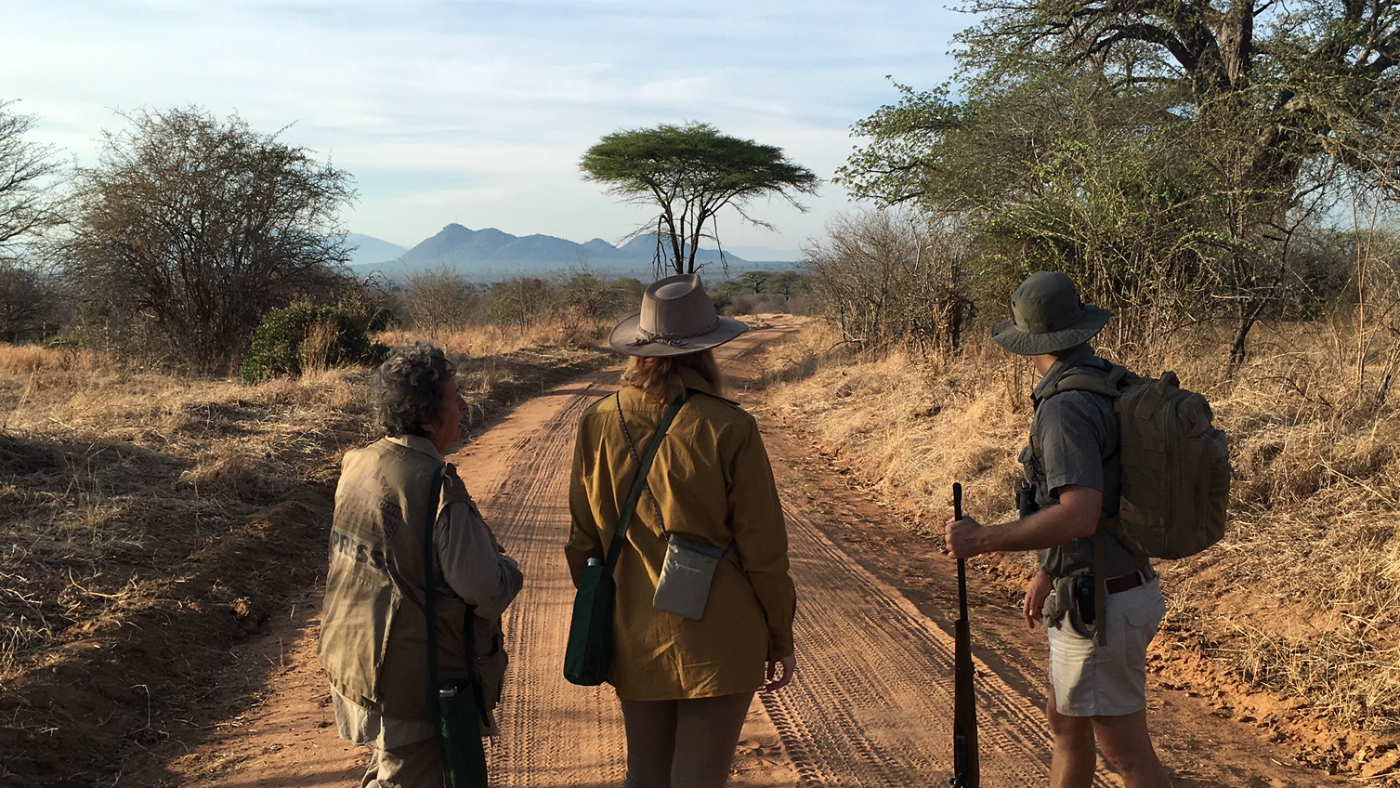
A free daily email with the biggest news stories of the day – and the best features from TheWeek.com
You are now subscribed
Your newsletter sign-up was successful
“...and this is the horn that you use in case of an emergency.”
“Has the horn ever been used before?” I asked, feeling like I already knew the answer.
“Not that often, but actually, last week one of the guests saw a lion outside their tent, but in fact, it was pretty far away.” replied Mark, the owner of both Ikuka lodge - my home for the night - and, reassuringly, a rather large gun.
The Week
Escape your echo chamber. Get the facts behind the news, plus analysis from multiple perspectives.

Sign up for The Week's Free Newsletters
From our morning news briefing to a weekly Good News Newsletter, get the best of The Week delivered directly to your inbox.
From our morning news briefing to a weekly Good News Newsletter, get the best of The Week delivered directly to your inbox.
I think it was about when the horn was introduced that it dawned on me. A week sampling walking safaris in Tanzania’s Ruaha National Park, was going to be anything but a walk in the park.
Walking is not perhaps the first mode of transport that springs to mind when someone mentions a safari. But as the irrepressible Andrew “Moli” Molinaro - another of our hosts - explained on one such wander through the jungle, game drives are like watching wildlife through a TV screen, while a walking safari allows for a full sensory experience that emphasises the aliveness of the African bush.
Ruaha: what you need to know
The world’s fascination with the Serengeti - popularised by its Disneyworld imitation and by Toto’s enduring 1980s hit Africa - means that Tanzania’s largest national park, Ruaha, is comparatively undiscovered by tourism,
Ruaha is almost 40% larger than its northern neighbour, but it receives less than 10% of the visitor numbers.
A free daily email with the biggest news stories of the day – and the best features from TheWeek.com
There are only 10 camps and lodges within the park’s 7,809 square miles, mostly clustered along the Ruaha river bank, leaving 90% of the park to the animals. And there are plenty of them.
The game

Ruaha is home to one of the continent’s largest lion populations - in fact, 10% of all the world’s lions roam the park’s savannah. Keeping them company are Tanzania’s largest elephant populations, one of the world’s largest remaining cheetah populations and 574 species of colourful and noisy birds, including the native Ruaha hornbill.
While the big five (lion, leopard, rhinoceros, elephant, and Cape buffalo) are an obvious draw, the ecosystem supports many lesser known fauna that are impressive in their own way. We meet dik-diks, tiny deers that live in pairs and mate for life, while impala antelope appear at every turn - these are gleefully nicknamed McDonalds by our guides, as they are the closest thing to fast-food for the predators in the bush.
The landscape
The colours of Ruaha are straight out of a film, lush greens meet dusty browns as the acacia-dotted grasslands adjoin with jungle. And if you pardon the Lion King reference, a walking safari really does give you a feel for the circle of life.
During a brief respite from the midday sun, Moli regales us with a fascinating tale of how the acacia tree has developed several defence mechanisms to prevent giraffes from munching them to shred. As the tree’s thorns have evolved over time to grow longer, so too have giraffes’ tongues, but the acacias also release tannins to ruin the taste of their leaves and communicate the danger to other trees within a 50 yard radius, spoiling a giraffe’s lunch all throughout the day.
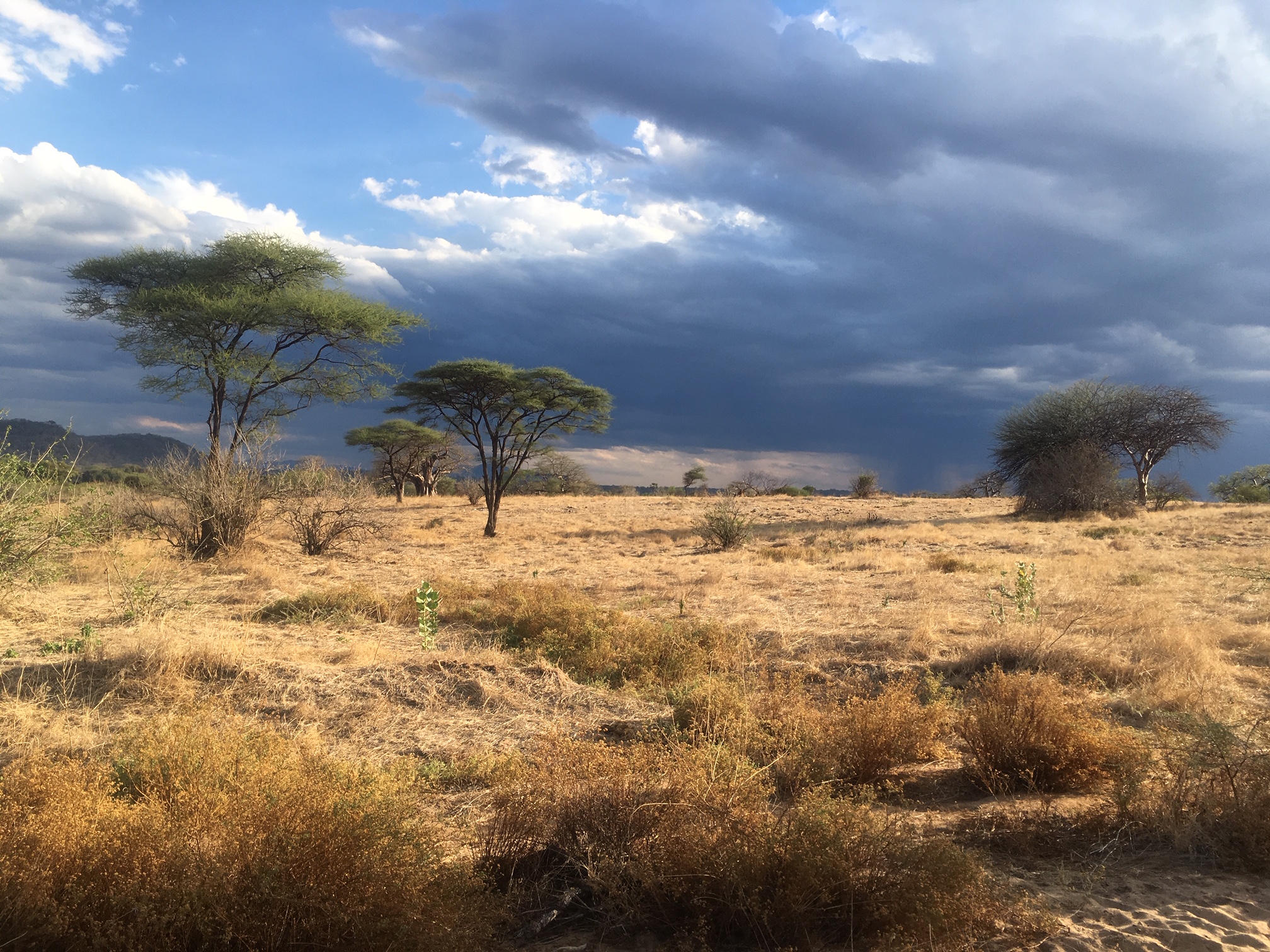
Stories such as these lend themselves to the dynamic of a safari on foot and the tangents our guides would take, prompted by noticing a certain animal track or bird call, meant every trip into the bush felt unique.
There’s no bad time to visit Ruaha. The dry season from May to October has its advantages, as animals gather around the most reliable water holes, making them easier to find. But the wet season, from November to April, is undoubtedly the park at its most photogenic as the rain turns the arid landscape a lush and verdant green.
Accomodation - Ikuka
The upmarket Ikuka Safari Camp was our first home . Built high on the park’s Mwagusi escarpment, the camp’s perch was the perfect place to understand the geography of Ruaha.
Owner Mark and the camp’s manager, Tanya, did everything to make the admittedly alien surroundings seem like home, and every staff member added to the welcoming and relaxed atmosphere. The evening meal, where all the guests eat together, sharing stories of the day’s sights and sounds over beautifully cooked flavoursome food, was a true highlight.

If there’s one thing you find after a morning spent walking in the bush, you certainly do build up an appetite, and nothing can prepare you for the sight of breakfast laid out for you under an acacia. It's not just cold juices and croissants either - Ikuka’s breakfasts are something of a Ruaha legend, with incredible eggs and a variety of meats, all prepared under the gaze of a giraffe or even a group of baboons if you’re lucky.
The lodge itself is beautifully constructed. Each of its 10 thatch-roofed cottages contains a generously sized bedroom and bathroom, as well as a separate living room, while open sides give resplendent views across the valley. At night, huge mosquito nets drawn around your king-size bed make it possible to view the famous African sunrise without any unwanted winged visitors.
A few steps lead down to a raised wooden veranda where guests can enjoy more spectacular views beside a beautiful oval swimming pool, set out with shaded sun loungers and staffed by camp employees on hand to offer drinks and snacks. Gazing across the horizon, you are immediately immersed in the lap of luxury, all the while in awe at the wonder of mother nature.
Kichaka
Our next stop, Kichaka, took us nearly an hour away to the remote east of the park: a truly stunning drive where the only company we had were the flora and fauna.
Kichaka is a remarkable experience even by the standards of our trip. Run by Noelle Herzog and Andrew “Moli” Molinari, it was established with the aim of focusing on walking safaris, giving visitors a truly wild bush experience in one of Tanzania’s most remote areas. As Moli explained one night over fireside drink, the appeal of guiding visitors through areas that may not have seen humans in a millennium or more made the thought of a 9-5 desk job impossible.
Noelle and Moli clearly love their jobs and it shows, with Kichaka lending itself to a more intimate experience and guests treated more like friends and family than paying customers.
While the site has a slightly more pared-back vibe, the tents are still beautifully designed, with furniture fashioned from a 19th-century ship salvaged in nearby Zanzibar. The sleeping quarters feature supremely comfy double beds and drop showers which offer more staggering views.
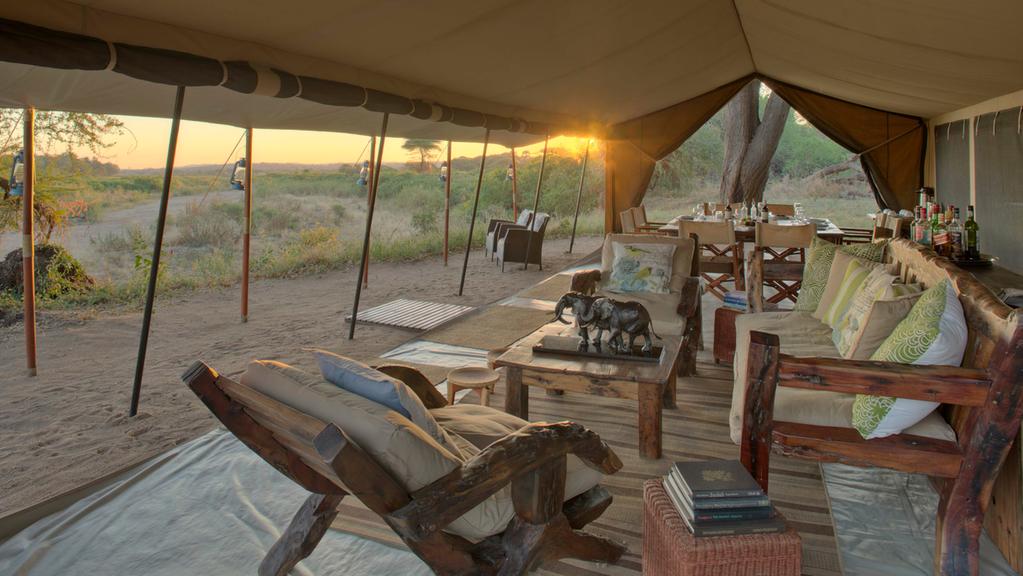
Safari with Moli is an unforgettable experience. A true bon vivant and polymath, the hours zipped by as he recounted facts and anecdotes about everything and anything under the African sun. After two days, we also got to sample the magic of Kichaka’s fly camp. Sleeping down on the Ruaha river bed, with animals regularly walking by at night, seemingly a million miles from civilisation, i’m not sure you could be further from the urban experience.
A special mention should also go to Kichaka’s food. We attended at the end of a long season, and considering the remote setting you’d forgive them if they couldn’t quite source ingredients to compete with some of the more easily accessible lodges. But without fault, each dish cooked up by Noelle was simply exquisite. In fact a portion of garlic fries from her native California was quite possibly the best version of the humble chip I’ve ever encountered.
Safety and who to book with?
Remarkably for an activity that involves two people carrying large guns, our treks into the bush never felt unsafe. Both Moli and Mark exude experience, and Ruaha’s park rangers struck the right balance between taking their jobs seriously while we were on the move while proving keen to chat when we rested.
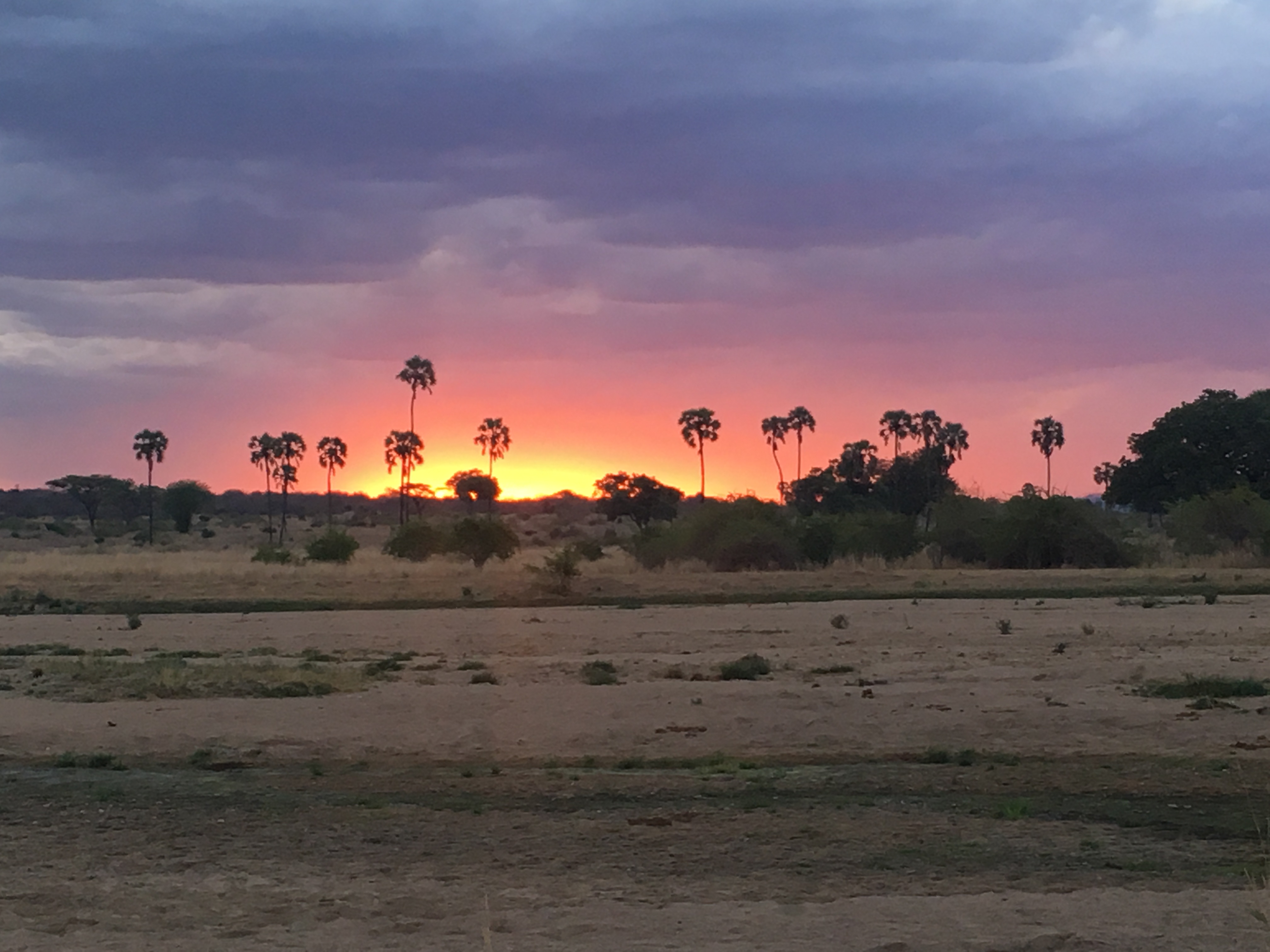
Coming face to face with a lion is not for the faint-hearted, as evidenced by my rocketing heart-rate, and the fact that our time in Ruaha was relaxed and stress free is largely down to our trip organisers, UK-based Audley Travel.
Showcasing the very best of a far-flung destination like Ruaha takes months of research and expert planning - something that Audley prides itself on, with country specialists designing all their trips. Nothing was too much hassle and everything was tailored specifically to our group’s needs.
Ahead of departure, Audley sent us all a filofax filled with a wealth of information about what to expect while we were out there and giving us the latest on everything from FCO advice to the weather in the country.
It was little touches like this that set Audley apart, putting any worries we had to rest and allowing us to focus on the magic of Ruaha - with or without the horn.
Audley Travel offers tailor-made trips to Tanzania. An 11-night trip includes five nights in Ruaha National Park (two at Ikuka and three at Kichaka) and four nights on Zanzibar.
The trip costs from £6,400 per person (based on two sharing) and includes international flights from London with Qatar Airways (www.qatarairways.com) and domestic flights, accommodation on an all-inclusive basis in Ruaha and full board in Zanzibar, transfers and excursions (each walking safari at Ikuka has an additional $50 per person charge). For more information visit www.audleytravel.com/tanzania or call 01993 838545.
-
 Rubio boosts Orbán ahead of Hungary election
Rubio boosts Orbán ahead of Hungary electionSpeed Read Far-right nationalist Prime Minister Viktor Orbán is facing a tough re-election fight after many years in power
-
 Hyatt chair joins growing list of Epstein files losers
Hyatt chair joins growing list of Epstein files losersSpeed Read Thomas Pritzker stepped down as executive chair of the Hyatt Hotels Corporation over his ties with Jeffrey Epstein and Ghislaine Maxwell
-
 Political cartoons for February 17
Political cartoons for February 17Cartoons Tuesday’s political cartoons include a refreshing spritz of Pam, winter events, and more
-
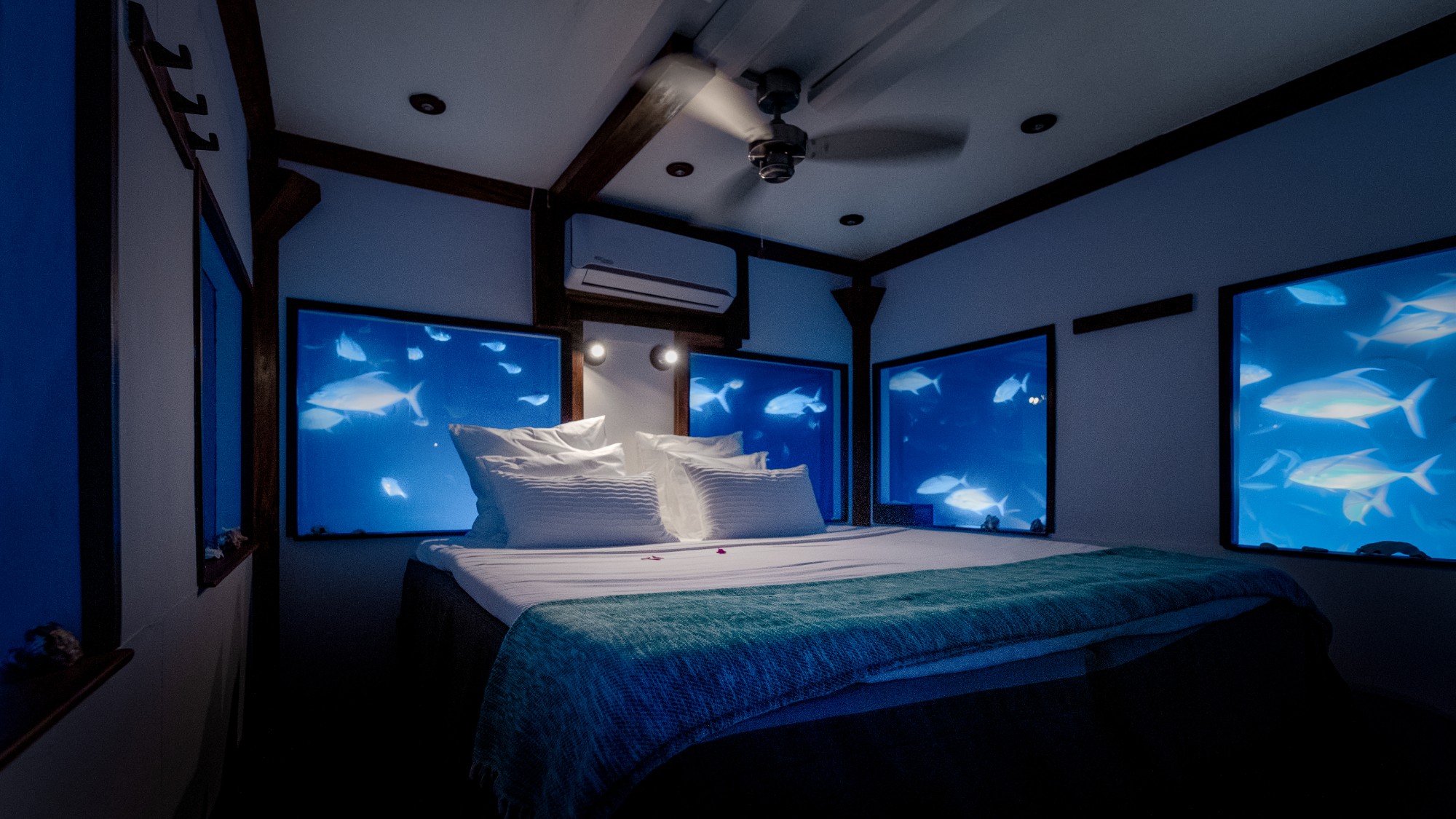 Dive right into these 8 underwater adventures
Dive right into these 8 underwater adventuresThe Week Recommends It’s time to make a splash
-
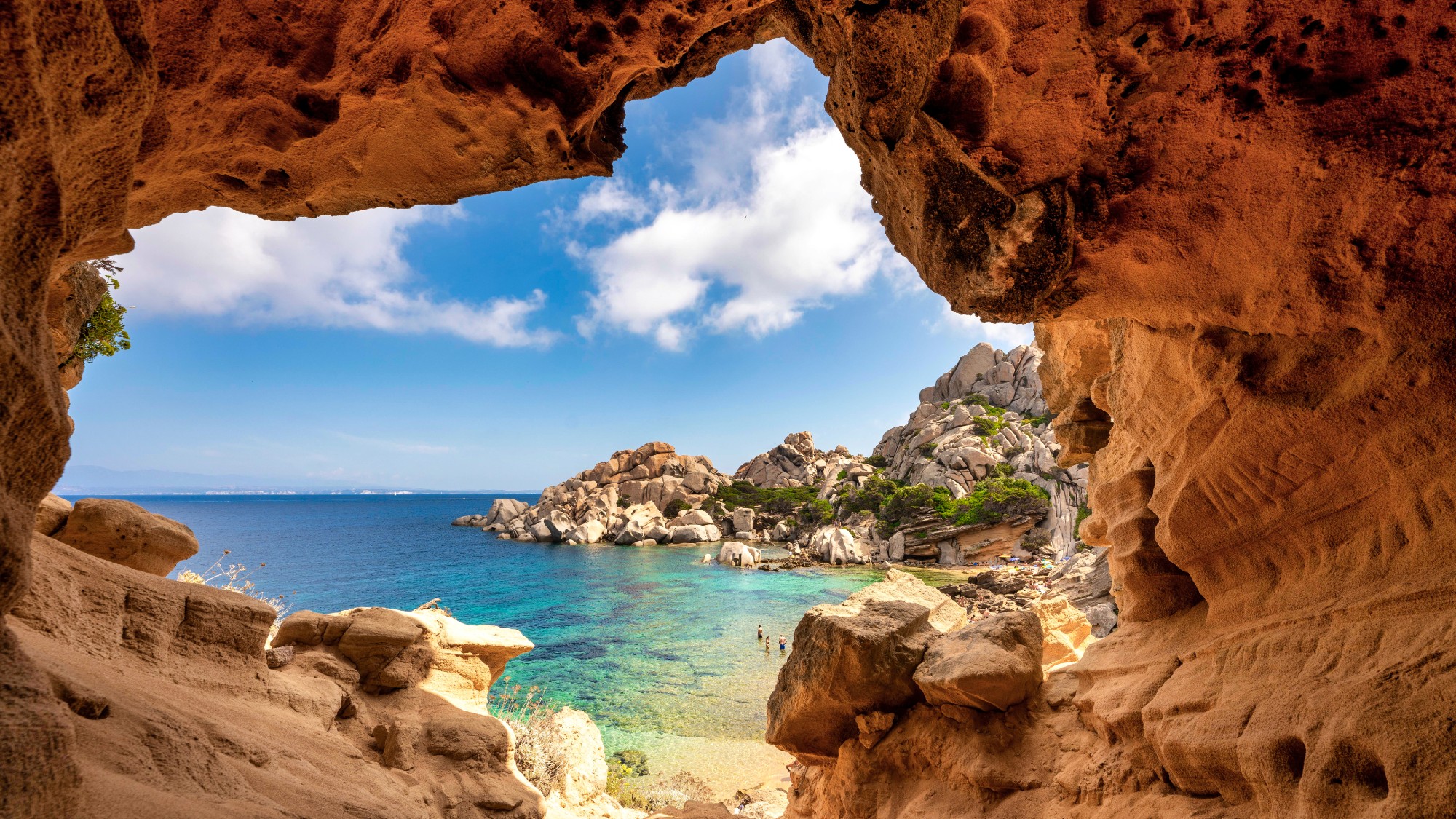 8 incredible destinations to visit in 2026
8 incredible destinations to visit in 2026The Week Recommends Now is the time to explore Botswana, Mongolia and Sardinia
-
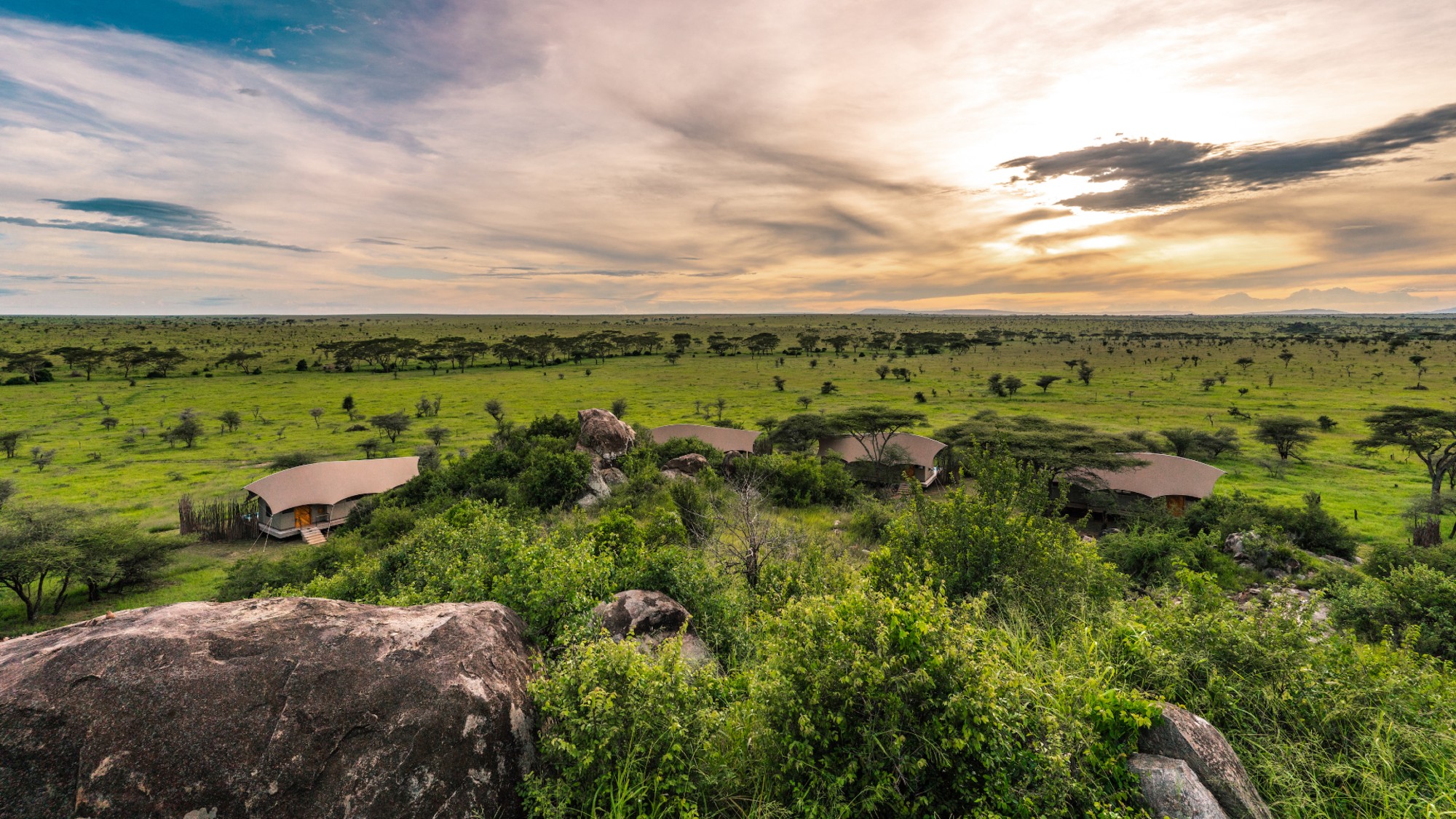 Experience Tanzania’s untamed wilderness from Lemala’s luxury lodges
Experience Tanzania’s untamed wilderness from Lemala’s luxury lodgesThe Week Recommends The vast protected landscapes are transformed into a verdant paradise during ‘emerald season’
-
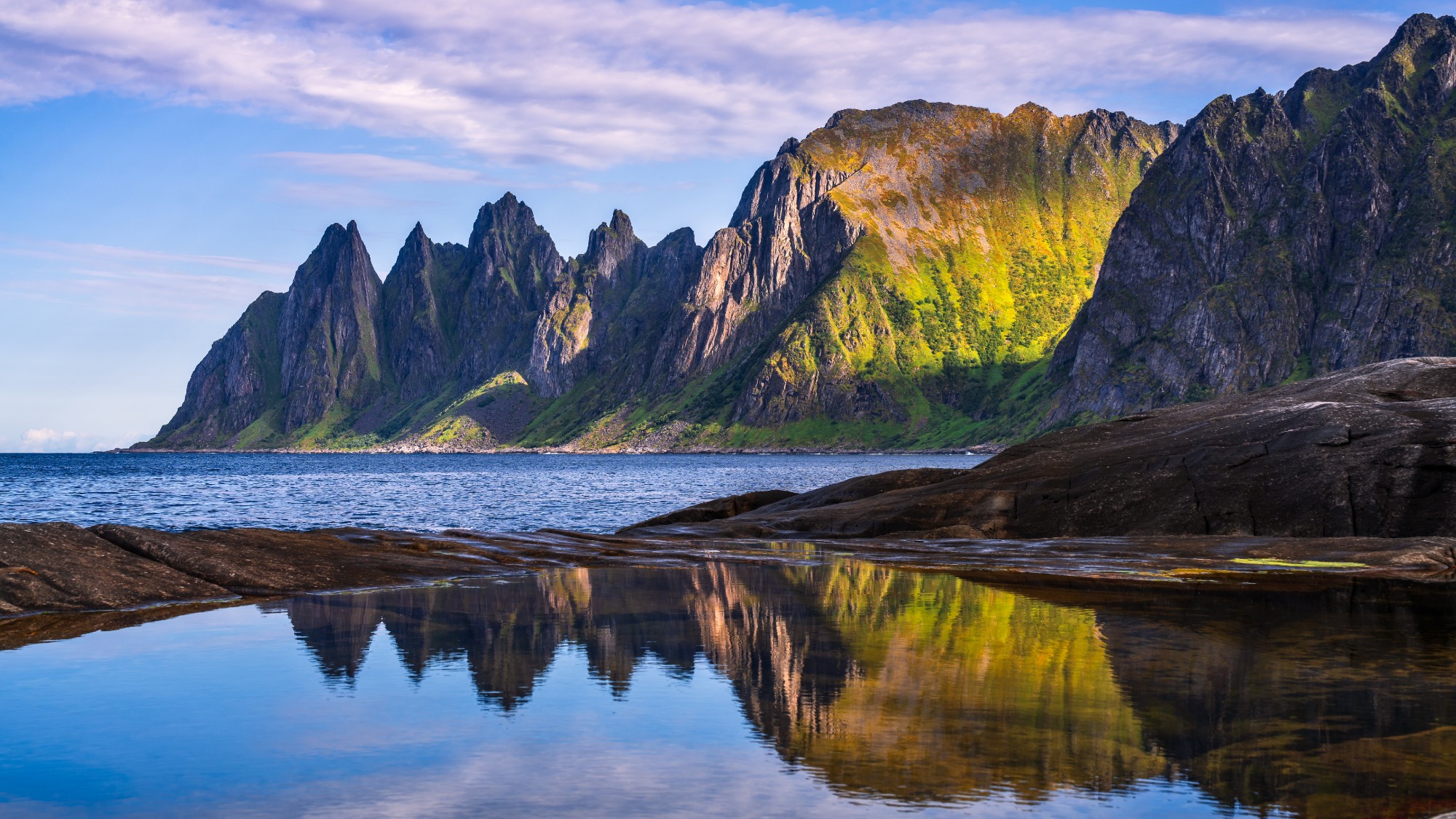 Go beyond the islands you already know in these 8 countries. Surprises await.
Go beyond the islands you already know in these 8 countries. Surprises await.The Week Recommends These destinations fly under the radar
-
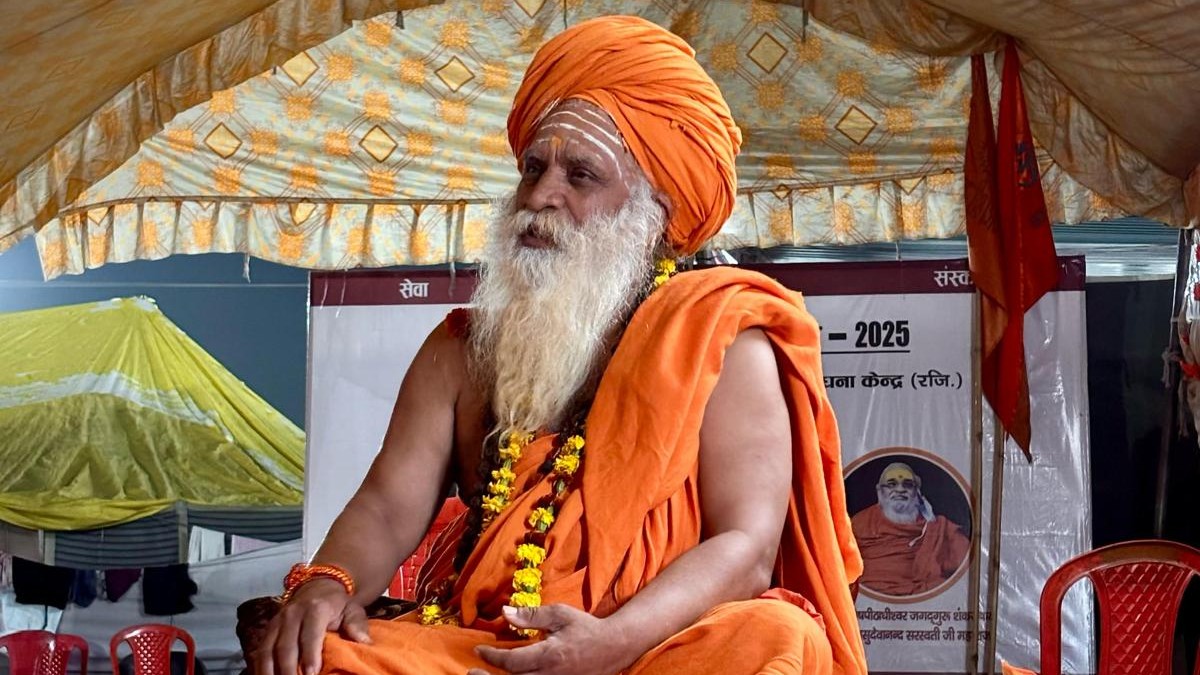 Uttar Pradesh: from a once-in-a-generation festival to tiger tracking in an ancient forest
Uttar Pradesh: from a once-in-a-generation festival to tiger tracking in an ancient forestThe Week Recommends Soak up the state's rich culture on one of Explorations Company's specially curated tours
-
 Friendship: 'bromance' comedy starring Paul Rudd and Tim Robinson
Friendship: 'bromance' comedy starring Paul Rudd and Tim RobinsonThe Week Recommends 'Lampooning and embracing' middle-aged male loneliness, this film is 'enjoyable and funny'
-
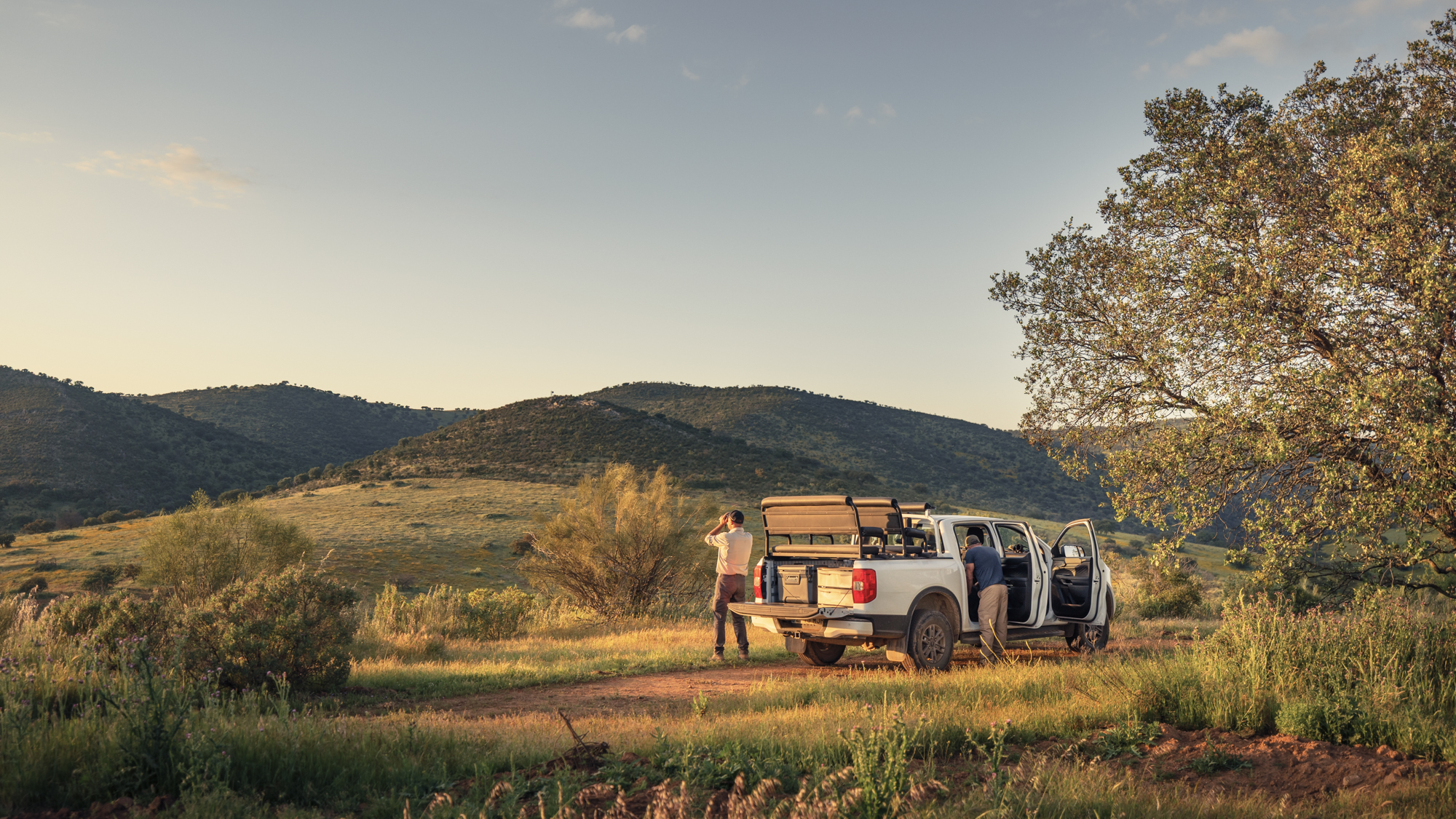 On the trail of the Iberian lynx
On the trail of the Iberian lynxThe Week Recommends Explore the culture, food – and wildlife – of Extremadura on this stunning Spanish safari
-
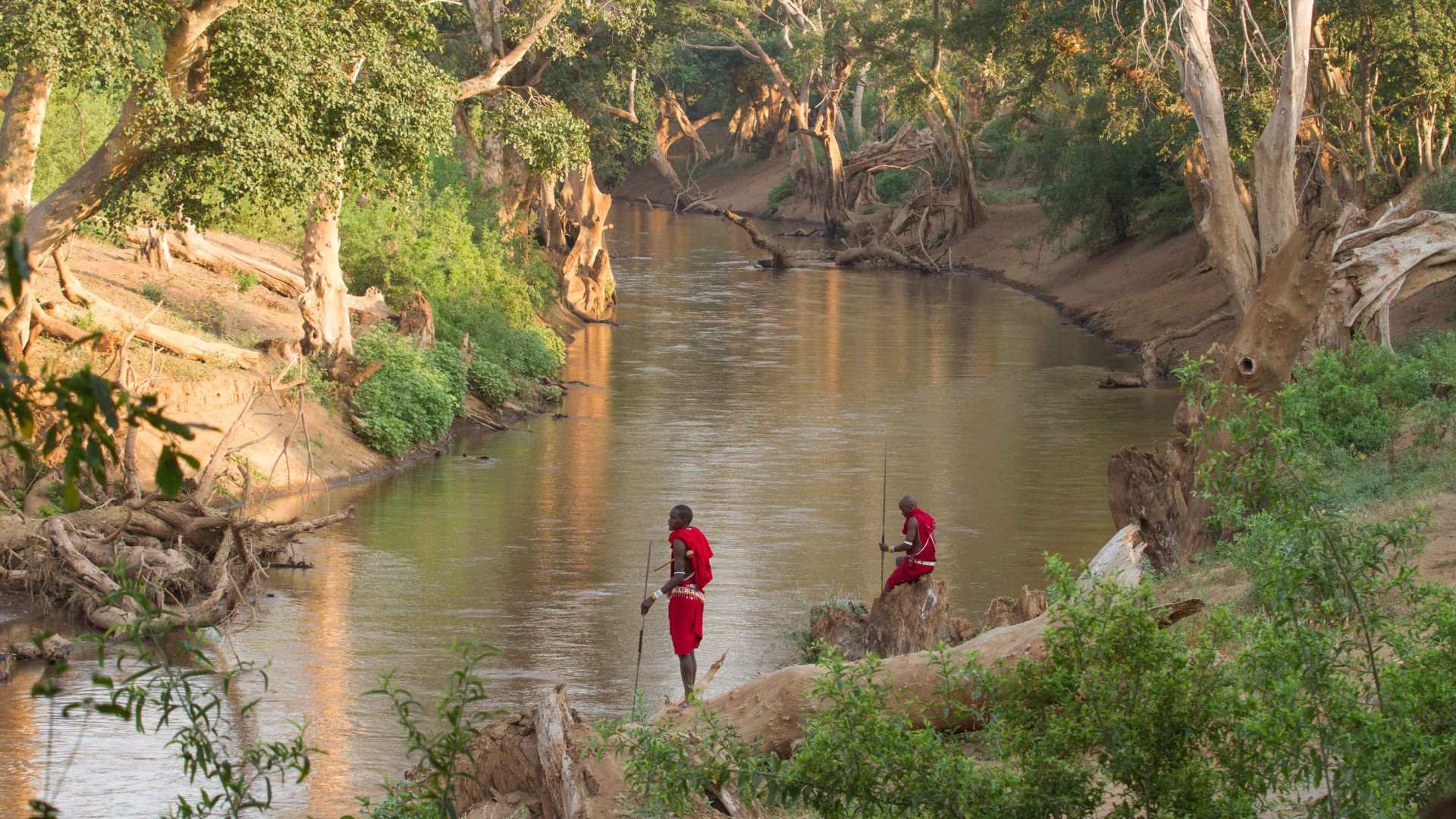 Shompole Wilderness Camp: immerse yourself in nature at this secluded retreat
Shompole Wilderness Camp: immerse yourself in nature at this secluded retreatThe Week Recommends This luxurious family-run camp in southern Kenya has access to more than 350,000 acres of pristine savannah